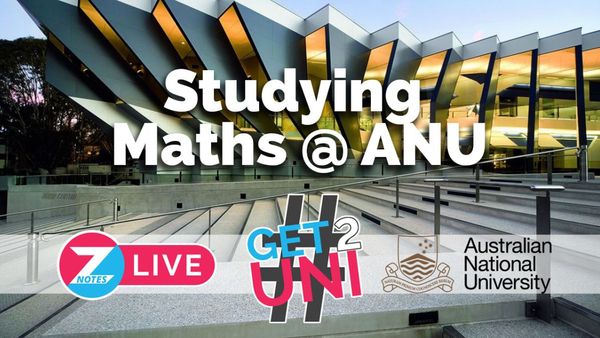Snowflakes and Adventures: Understanding Foreign Exchange Programs
“The world is a book and those who do not travel read only one page.”
― St. Augustine
Adventures are the best way to learn. With the wind in your hair, a relentless jabber of foreign articulations abound and the chirping thrill of being somewhere besides Home, adventures awaken our true instincts and make us more open to the beauty of the world.
Hence, mixing education with this already delightful concoction is not an all-crazy idea, and might just result in the perfect blend of culture, welfare and learning; rationalizing the process to a more practical and student-friendly pace.
Welcome to the hub of global diversity - Foreign Exchange Programmes.
Decoding the Process
A foreign exchange programme typically consists of a student spending a semester of study abroad at another university/school considered a partner institution. The student blends entirely into the new academic and cultural environment and gains insights on a deeper, more profound level - assimilating and accommodating information in comparison to their home country.
Typically, students under 18 taking part in such programmes tend to stay with a vetted local family and integrate themselves as one with the tribe. However, this might not always be the case and if the program for study consists of much less than a semester, the organization planning the trip takes care of alternate arrangements.
A key aspect of these programmes is interacting with the locals of another community. Making friends, and sparking lost lasting commitments are just a few perks of travelling halfway across the world and provide the candidates with a glimmer of global learning. This heightened exposure to the world from a young age inspires a sense of unity, and cements the need for them to become global citizens.
This exposure further sparks a unique sense of global-mindedness in the youngsters. Global Mindedness is an all-encompassing term and represents a lot of what we do here at ZNotes. It refers to the appreciation and respect of cultures across borders, and being open and accepting to the value systems they come with. By participating in a foreign exchange, the students understand the beliefs of another culture and environment by immersing themselves in it, rather than from a textbook. This helps them associate things with the face of humanity as a whole and inculcates a friendly sense of world citizenship.
But there are far more benefits that come with participating in a foreign exchange than making connections.
Understanding the Benefits
According to research amongst European students, there was an increase of 42% in employment among those who took part in the Erasmus International Exchange compared with those who did not. This is because employers look for something known as “transversal skills”, that is the ability to be adaptable, curious and innovative, using a broad umbrella of critical thinking skills to solve the many issues that come your way.
They also look for an increased sense of cultural awareness and the ability to integrate into the workplace, readily. These are skills any foreign exchange programs heighten and teach, from the personal and unique exposure you share. Employers find students who have completed such endeavours more likely to fit in with their circles, mingle well and emerge as confident leaders in the future.
Apart from boosting your employability, here are a few other benefits that taking part in a foreign exchange program can bring you:
- It helps you experience different academic communities that increase your potential to learn.
- It pushes you out of your comfort zone!
- It helps you become more self-aware and teaches you all the hidden personality traits you never knew you had!
- You become more communicative, appreciative and understanding of what happens around you.
- It helps you spark global connections and find a network of people from around the world with similar likings as yours, broadening your own perspectives.
These points are just the tip of the iceberg, and every student’s experience is entirely unique. So, be prepared for anything and expect the unexpected especially when you decide to venture across the sea.
However, it wouldn’t be fair to only discuss the pros and not glance at the cons. After all, life is and continues to be a double-edged sword!
Making peace with the Cons
Although participating in an exchange program enhances your personal growth in myriad ways, there are quite a few cons you need to understand before you take the leap. One thing students must keep in mind is that the duration of exchange programs forces them to learn and unlearn the social hierarchy of a different setting in a very short span of time. You are expected to become a master of your surroundings, make friends and thrive academically within just a few months, contrary to the many years you took in establishing your setting back home. This can really push the limits on students and pressure them into making choices they’re not entirely comfortable with.
Remember exchange programs are to discover your true identity and potential, and not alter that for another’s perspective. The peer pressure one experiences in another country that is not their own might just contribute further to students falling off the wrong path and misusing the perks of the opportunity provided.
Here are a few other points students considering this program need to evaluate in order to make a fair judgement:
- Language barriers are real even for the most capable speakers, and will be challenging to overcome initially.
- Finding food appropriate to your diet can be a struggle in some countries more than others.
- Loneliness is common among exchange students, and students need to be prepared to experience both sides of life outside the classroom.
- Re-integration back into your own country after living abroad for a while, can be hard.
- It can be more expensive than studying in your own country and if you’re not careful and don’t budget well can put some financial strain on your pockets!
So, what can we conclude from this then?
While exchange programmes do come with their own pros and cons, the one thing this article stresses is that each experience is like a snowflake and no two are the same. Each student goes through something so intricately designed to fit only their personality mechanisms, and nobody else’s. What you find amusing, someone else might find abhorrent - so be prepared to balance both sides of any coin and make more reasoned judgements.
Remember, immersing yourselves in an exchange program means braving the good, the bad and the ugly. It means taking that leap of faith that promises treasure and cruising past the odds to claim your victory. It means answering that call to adventure only you can hear and seeing the world in all its glory, for perhaps the very first time. So, bon voyage dear students! And carpe diem!




